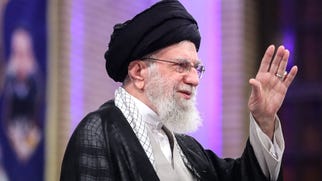President Donald Trump recently rejected an Israeli plan to assassinate Iran’s Supreme Leader Ayatollah Ali Khamenei, as reported by USA TODAY. This decision came amidst Trump’s efforts to broker a peace deal between the two nations. A senior U.S. official, speaking anonymously, confirmed that Israel had the opportunity to eliminate Khamenei, but Trump intervened and diverted the plan. Reuters initially broke the story of Trump vetoing the operation targeting the Iranian leader, with a Trump administration official emphasizing a need for Iranian aggression towards Americans before considering actions against political leadership.
While it remains unclear how Trump or other officials communicated this stance to Israel, ongoing communication between U.S. and Israeli officials has been maintained since Israel conducted airstrikes on critical Iranian nuclear facilities. Israeli Prime Minister Benjamin Netanyahu, addressing the report on Fox News, neither confirmed nor denied Israeli ambitions for regime change in Iran, citing Iran’s alleged weakness and intentions for nuclear weapons and missiles. Trump, in a recent social media post, warned Iran against targeting U.S. interests amid escalating tensions with Israel, hinting at potential military retaliation.
As the situation unfolds, Trump expressed optimism for a possible resolution while acknowledging the possibility of conflict escalation. The complex dynamics between the U.S., Israel, Iran, and the pursuit of peace amid regional tensions underscore the intricate diplomatic challenges at play in the Middle East.

